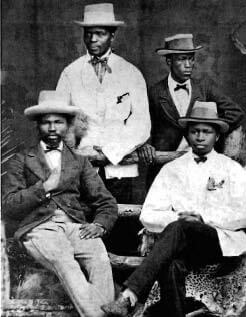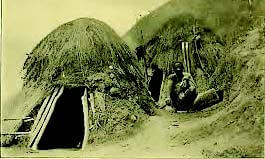Pioneer Xhosa missionary opens doors in Malawi
By AfriGO Team

Leave darkness! Come to the light!
Pum’ebumnyameni! Yiza ekukanyeni!
Take up the shield and trust in faith!
Qubula ikaka umise nge kohlo!
Aim forward and go to the cross!
Funzela pambili uy’emnqamlezweni!
And leave the sunny shades of sins.
Ushiy’imitunz’enelanga yezono.
– Isaac Wauchope, who hoped to reach the lost in Malawi but was prevented by sickness.
In 1876, four young men from the Xhosa tribe in South Africa volunteered to go out as missionaries to the Ngoni in present-day Malawi. Chosen from among 20 candidates studying at Lovedale Missionary Institute, they traveled north with high hopes and a desire to share the gospel with those who had not heard.
Shadrach Mngunana, the most academically astute, went as a teacher but died of fever within nine months. Isaac Williams Wauchope suffered from fever en route and had to turn back. Mapassa Ntintili, a wagon-maker, stayed almost four years at Cape Maclear and Blantyre before returning to South Africa where he became a teacher and evangelist. William Koyi, the best remembered of the group, served in Malawi for 10 years and left a mark that is still commemorated today.
The Ngoni tribe had migrated from Zulu country north into Malawi and settled on the western side of what is now Lake Malawi. They were formidable warriors and regularly attacked their neighbours. The missionaries of the Livingstonia Mission, among them Koyi, wanted to reach them with the gospel of peace and salvation, but to approach the chief of such a fierce people was no easy matter.
Through some introductions, an audience was finally granted. Koyi had a remarkable advantage over his European colleagues: he could readily understand the Ngoni language, which is part of the same linguistic group as Xhosa. The chief came to accept him because of this ability and his sensitivity to their customs. Koyi was the first to speak the name of Jesus to this people.
Once when an Ngoni war party headed out to plunder villages and the mission station, where they expected to find stores of supplies, Koyi volunteered to go out to meet them, at tremendous personal risk. Not only did he convince them to turn back, but to lead him to their chief, in order to preach the gospel. He eventually settled among them for periods of time, and became a pioneer missionary among the Ngoni, which opened up opportunities for other missionaries.
Dr Walter Elmslie, another missionary, wrote: “the judgment and caution of Mr. Koyi were invaluable.” Those first years among the Ngoni were fraught with danger, and raiding and slaughter continued around the missionaries who strove to share the Good News with a people who were slow to accept it. However, the influence of Koyi’s humble Christian life, and resilience in the face of danger and difficulty, won the respect and love of the Ngoni.

Ngoni house
Eventually, Koyi contracted tuberculosis but before he died, Dr Elmslie visited him to tell him the chief had granted complete permission to teach and preach the gospel among the Ngoni. Koyi responded with the words of Simeon from Luke 2:29-32: “Sovereign Lord, as you have promised, you may now dismiss your servant in peace. For my eyes have seen your salvation, which you have prepared in the sight of all nations.”
Recruited as a young student and eagerly evangelising at every opportunity, Koyi was known as God’s humble worker, a man of great courage and faithfulness. He died and was buried among the Ngoni, and is honoured today for the sacrifices he made to bring them the Light of Life.
“Sovereign Lord, as you have promised,
you may now dismiss your servant in peace.
For my eyes have seen your salvation,
a light for revelation to the Gentiles,
and the glory of your people Israel.”
-The Nunc dimittis, or Song of Simeon from Luke 2:29-32
Photo at top – Left to right: William Koyi, Mapassa Ntintili, Shadrach Mngunana, Isaac Wauchope
Sources:
- Interview with Rev Siegfried Ngubane, Director of SIM’s Southern Africa Region.
- In Memory of William Koyi
- Xhosa Missionaries to Malawi: Black Europeans or African Christians? by T. Jack Thompson. International Bulletin of Missionary Research, Oct 2000, pp168-170.
